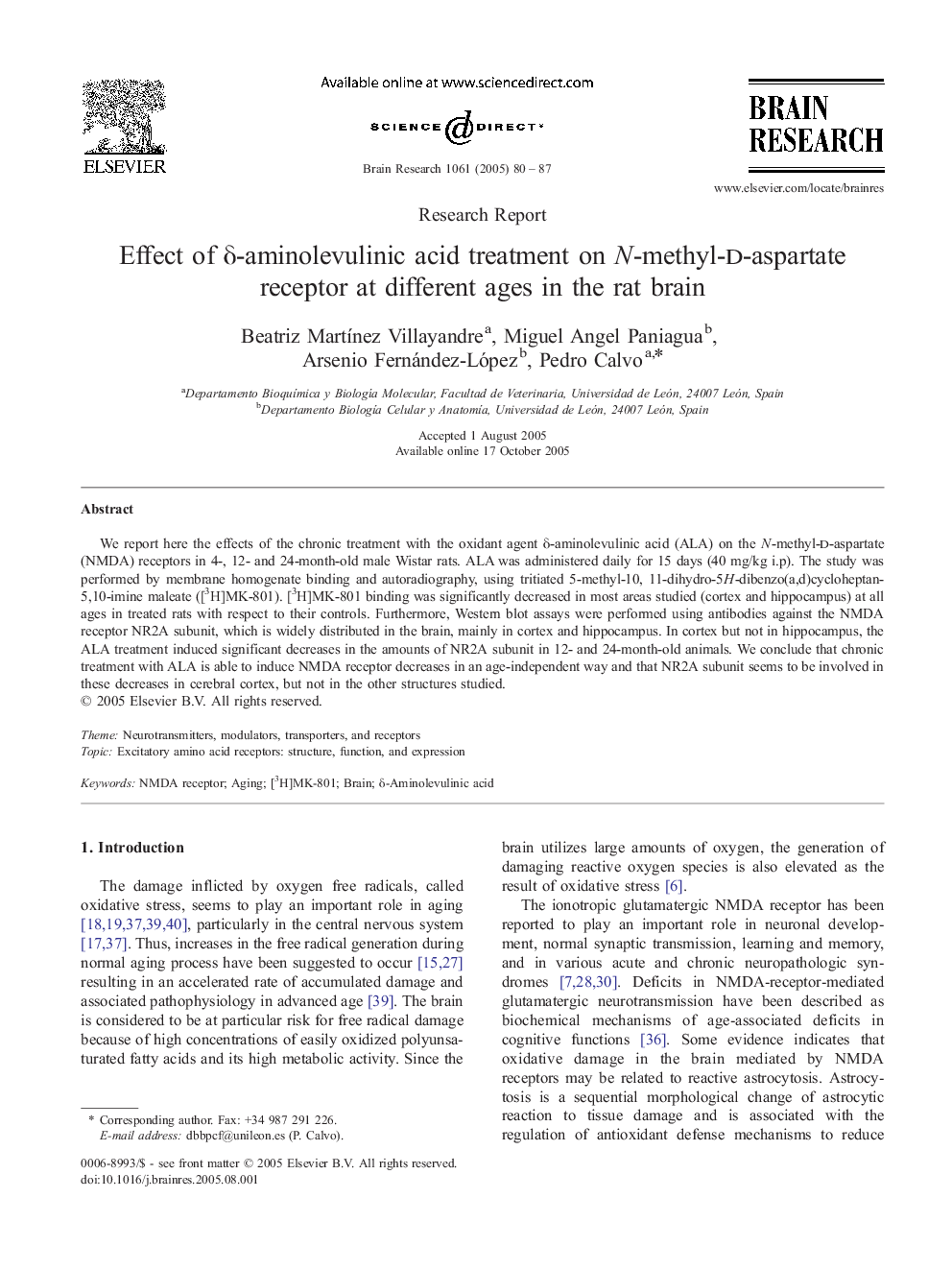| Article ID | Journal | Published Year | Pages | File Type |
|---|---|---|---|---|
| 9415825 | Brain Research | 2005 | 8 Pages |
Abstract
We report here the effects of the chronic treatment with the oxidant agent δ-aminolevulinic acid (ALA) on the N-methyl-d-aspartate (NMDA) receptors in 4-, 12- and 24-month-old male Wistar rats. ALA was administered daily for 15 days (40 mg/kg i.p). The study was performed by membrane homogenate binding and autoradiography, using tritiated 5-methyl-10, 11-dihydro-5H-dibenzo(a,d)cycloheptan-5,10-imine maleate ([3H]MK-801). [3H]MK-801 binding was significantly decreased in most areas studied (cortex and hippocampus) at all ages in treated rats with respect to their controls. Furthermore, Western blot assays were performed using antibodies against the NMDA receptor NR2A subunit, which is widely distributed in the brain, mainly in cortex and hippocampus. In cortex but not in hippocampus, the ALA treatment induced significant decreases in the amounts of NR2A subunit in 12- and 24-month-old animals. We conclude that chronic treatment with ALA is able to induce NMDA receptor decreases in an age-independent way and that NR2A subunit seems to be involved in these decreases in cerebral cortex, but not in the other structures studied.
Keywords
Related Topics
Life Sciences
Neuroscience
Neuroscience (General)
Authors
Beatriz MartÃnez Villayandre, Miguel Angel Paniagua, Arsenio Fernández-López, Pedro Calvo,
